CCP Princelings Send Representatives to Meet Trump at Mar-a-Lago (Image by Qingyu / People News)
[People News] On April 6, 2025, veteran journalist Guo Jun stated on the program Elite Forum that “all is fair in war.” Under current circumstances, the question is whether He Weidong and Lin Xiangyang have truly fallen from power, or whether they have gone into hiding to carry out more important, top-secret military operations. This possibility, he emphasized, deserves serious consideration and thoughtful analysis.
Guo Jun expressed skepticism about the widespread reports of a massive purge of senior Chinese military officials. He pointed out several inconsistencies that don't quite add up.
First, most external analysts are operating on the assumption that Central Military Commission Chairman and Vice Chairman He Weidong, along with Eastern Theater Commander Lin Xiangyang, have indeed been purged. However, the Chinese Communist Party (CCP) has not officially confirmed this. Their names still appear in official CCP media, and they have not been removed.
Second, looking at the global geopolitical landscape, the current moment represents a once-in-a-lifetime window of opportunity for the CCP to pursue military unification with Taiwan. Xi Jinping is not facing any immediate threats to his power. So why would the CCP choose now, during this critical window, to carry out a large-scale military purge? Time is not on the CCP’s side. This window of opportunity may last at most another two years. If the purge is real, and Xi Jinping is replacing frontline top commanders now, there may not be enough time for them to integrate with the troops effectively.
Why is this considered a rare opportunity? Firstly, because of the situation in the United States. U.S. national power is in decline. The Trump administration is taking strong measures to rescue the country’s finances. A crucial indicator is interest payments on sovereign debt. If these payments surpass military spending, it essentially signals a sharp decline in the power of a major country. Last year, U.S. interest payments officially exceeded defense spending. The outlook for this year remains uncertain. If the U.S. fails to significantly cut spending, interest payments will once again exceed defense spending—a serious economic problem.
Secondly, the U.S. is deeply politically divided. Trump’s preventative measures are likely to face strong resistance. The opposition remains powerful, and the social divide in America continues to deepen.
Third, the U.S. must continue to maintain its presence in Europe, Ukraine, and the Middle East. In the short term, there is little chance that Europe can achieve substantial military rebuilding.
Fourth, Trump’s series of foreign and trade policies may strain relations with allies, including Canada, Australia, and European nations. NATO’s responsiveness and rapid reaction capabilities could be severely affected.
Wars rely on economic power—specifically, manufacturing, the military-industrial complex, shipbuilding, weapons production, and so on. Although the U.S. has awakened to the need to strengthen this sector, it will take time. At present, in terms of production volume, China has a significant lead. For instance, in shipbuilding, China’s capacity now exceeds that of the U.S. by 100 to 200 times. Of course, the U.S. is trying to catch up and is working hard on weapons modernization, but that takes time.
Fifth, Taiwan is facing significant internal divisions. The Legislative Yuan has substantially cut military and administrative spending. Moreover, many Taiwanese are unwilling to go to war. Politically and in terms of public opinion, Taiwan’s policies toward the mainland are heavily constrained.
Sixth, there is the issue of Xi Jinping himself. By 2027, at the CCP’s 21st Party Congress, Xi will be facing a fourth term—his third reappointment.
If Xi has made no moves regarding Taiwan by then, and if the domestic economy stagnates or even declines, his political career may come to an end.
So overall, the period between now and 2027 poses the greatest risk for conflict in the Taiwan Strait. Two years from now, no one knows what might happen. The U.S. may restore its manufacturing base, particularly in smart manufacturing. Its domestic politics may stabilize. Alliances may recover. Europe might bolster its military preparedness.
This window of opportunity could soon begin to close. Recently, Pennsylvania Republican Congressman Scott Perry directly stated that the U.S. must treat the CCP’s ambition to annex Taiwan by 2027 as a real threat and take action. His warning aligns with remarks made by Admiral Cotton, head of U.S. Strategic Command, at a recent annual defense conference. Cotton stated that Xi Jinping has set a goal to invade Taiwan by 2027 and is pushing the CCP to invest more in land, sea, air, and nuclear weapons systems and related infrastructure. It seems the U.S. has received fairly solid intelligence on this.
Given all this, I question the truthfulness of reports about a major purge in the Chinese military. During WWII, the whole world knew the Allies would invade Europe—but no one knew when or where. At the time, famed General George Patton was dismissed by General Eisenhower for slapping a soldier in Italy. Patton, who had been commander of the 7th Army, was assumed by the Germans to still be leading the main Allied force. When Patton was spotted in a small town in England, the German army concluded the invasion would come from that location. Of course, they were wrong—the Allies landed in Normandy, and Patton was not the commanding officer.
Guo Jun emphasized that deception is a key element of warfare. Given the current situation, the question remains: have He Weidong and Lin Xiangyang truly been purged, or have they disappeared from public view to carry out critical secret military plans? This possibility, he said, must be taken seriously and carefully considered.

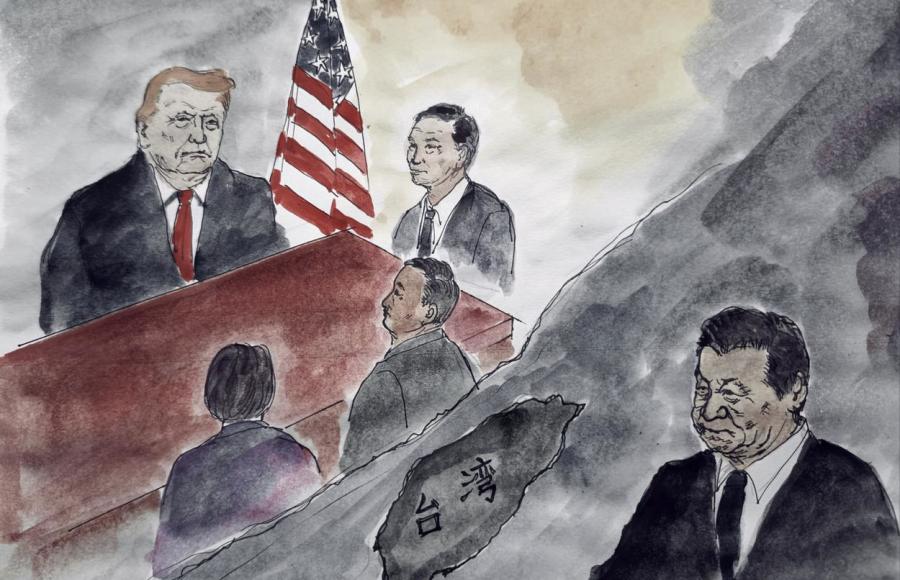
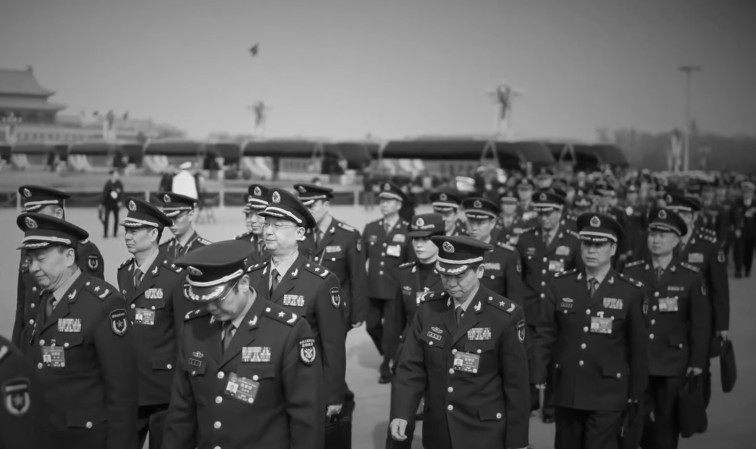
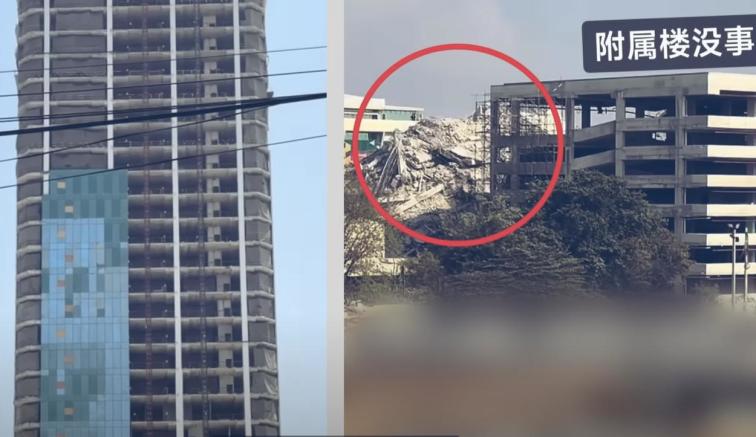

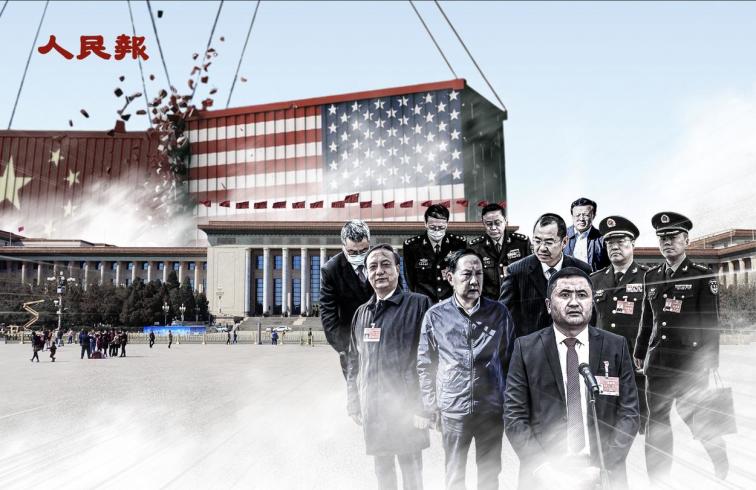



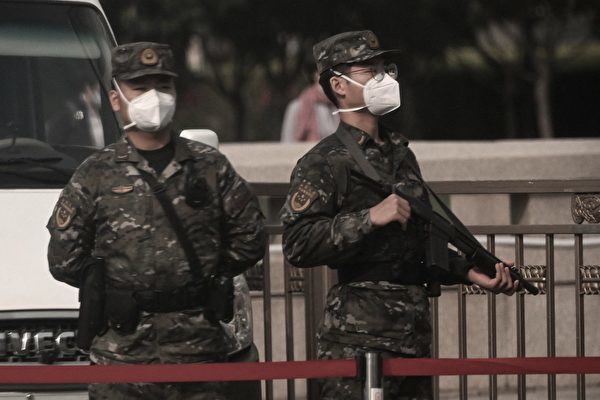

News magazine bootstrap themes!
I like this themes, fast loading and look profesional
Thank you Carlos!
You're welcome!
Please support me with give positive rating!
Yes Sure!